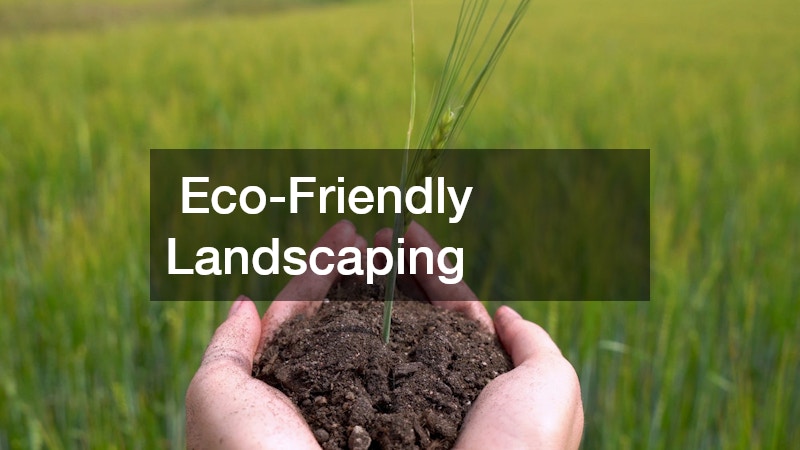
Sustainability Focused Living Simple Changes for a Greener Life
Living a greener life is no longer a niche lifestyle—it is an essential shift for those who care about the health of our planet and the well-being of future generations. With global climate change, depleting resources, and increasing waste, many people are reevaluating their habits and turning to sustainability focused living. This way of life doesn’t require radical change; instead, it thrives on simple, actionable choices that collectively make a big difference. Whether you’re a homeowner, a renter, or even a business owner, the path to sustainability begins with awareness and commitment.
For many, the first step toward sustainability starts with understanding the full impact of their daily choices. Every product we buy, every service we use, and every lifestyle habit we maintain contributes to a larger environmental footprint. From the energy required to produce and transport goods to the waste generated by excess packaging, the hidden costs of convenience are significant. Fortunately, today’s market offers more alternatives than ever before. Biodegradable products, locally sourced food, and renewable energy solutions are increasingly accessible. By educating ourselves and choosing options that support ecological balance, we can shift from passive consumers to active participants in environmental stewardship. This transformation empowers individuals to influence larger systems—corporate practices, community standards, and public policies—simply by making mindful, consistent choices in their own lives.
Sustainability focused living means integrating practices into your daily routine that reduce environmental impact and promote renewable resources. It can be as straightforward as cutting back on single-use plastics, improving your home’s energy efficiency, or even reconsidering the way you travel. These changes not only benefit the planet but also often lead to cost savings, improved health, and a deeper connection with your community and environment.
This blog explores twelve areas where small changes can help you live a more sustainable life. Each section highlights a specific aspect of sustainability focused living and includes practical advice and relevant industry insights. We’ll also integrate unique services and solutions, such as soil transformation studies or auto windshield repairs, showing how sustainability can touch even the most unexpected areas of life.
By the end of this guide, you’ll walk away with a clearer understanding of how sustainability focused choices can become a natural and rewarding part of your lifestyle. Let’s begin this journey to a greener, more conscious existence.
1. Eco-Friendly Landscaping

Improving your outdoor space with sustainable landscaping is a rewarding way to reduce water use and improve local ecosystems. One of the first steps is understanding your soil through soil transformation studies. These assessments can identify the exact amendments needed for optimal plant health and carbon absorption. This not only ensures a vibrant garden but also supports the environment by promoting soil regeneration and biodiversity.
This kind of effort aligns perfectly with sustainability focused practices. Choosing native plants, using organic fertilizers, and applying mulch can reduce water usage and lower chemical runoff. You can also integrate composting to enrich your soil while reducing food waste.
Creating a greener yard doesn’t require significant investment or effort. Even small steps like replacing grass with ground cover or installing a rain garden can have a big impact. When paired with insights from soil transformation studies, your garden becomes a living part of the global solution to climate change.
2. Water Conservation at Home
Managing water wisely is a cornerstone of sustainability focused living. Implementing a water management plan is essential not only for homeowners but also for neighborhoods and communities looking to conserve this precious resource.
A solid water management plan helps you monitor usage, detect leaks early, and implement systems like rain barrels and low-flow fixtures. It also encourages the reuse of greywater for irrigation. On a community level, strategies can include stormwater collection systems and water-conscious landscaping in public areas.
Simple habits, such as turning off the tap while brushing teeth or fixing dripping faucets, make a meaningful difference over time. Combining these actions with a structured water management plan ensures you’re making the most out of every drop—an essential element of sustainability focused practices.
3. Efficiency in Climate Systems
Heating and cooling are major contributors to home energy consumption. Switching to a ductless mini split heat pump installation can drastically improve efficiency and reduce your carbon footprint. These systems use less power, offer zoned temperature control, and avoid the energy losses typical of ducted systems.
This switch is a textbook example of sustainability focused home improvement. Unlike traditional HVAC systems, ductless mini splits can be installed with minimal structural change, reducing waste and installation time. They’re also compatible with renewable energy sources like solar panels.
This technology isn’t just about lowering your electric bill—it represents a long-term commitment to sustainable living. By choosing energy-efficient climate solutions, homeowners take a tangible step toward environmental responsibility.
4. Preparing for Electric Vehicles

As electric vehicles (EVs) grow in popularity, homes and businesses need to prepare. One key aspect is proper storage for EV batteries. These batteries require specific environmental conditions for safe and efficient operation—conditions that must be accounted for in garages, sheds, or specialized storage facilities.
This infrastructure development is an integral part of a sustainability focused future. Whether you’re planning to buy your first EV or are a business supporting EV adoption, understanding storage and safety is crucial.
Integrating EV battery storage solutions often goes hand-in-hand with solar energy systems and smart grid technologies. These connections highlight how sustainability is not a single change but a network of informed, interconnected decisions.
5. Clean and Healthy Household
Water purity impacts everything from your health to the environment. Integrating water treatments into your home can ensure that every drop you use is clean, safe, and environmentally friendly. Filtration systems, softeners, and UV disinfectants can reduce reliance on bottled water, thus minimizing plastic waste.
This is a clear reflection of sustainability focused goals. Clean water systems reduce your home’s environmental impact while promoting better health outcomes for your family.
Taking it a step further, consider systems that treat greywater for reuse in irrigation or toilet flushing. These installations can cut your overall water usage by up to 30%, supporting broader ecological preservation efforts.
6. Repurposing and Reusing
Manufacturing is often seen as the antithesis of sustainability, but innovation is changing that. One example is the growing use of a used box making machine in the packaging industry. These machines repurpose old boxes into new packaging solutions, reducing waste and extending the life cycle of cardboard materials.
Incorporating such practices is a testament to how sustainability focused industries can be—even those traditionally seen as resource-heavy. Emphasizing circular processes, like repurposing materials, helps reduce landfill overflow and decreases demand for raw resources.
Businesses adopting these technologies show that eco-conscious operations are not only possible but also cost-effective. They represent the future of sustainable industry.
7. Greener Transportation

Not all sustainable travel means public transit or biking. A golf cart sale can offer an excellent alternative for short-distance, low-speed commuting, especially in residential or resort communities. Electric golf carts are quiet, energy-efficient, and cost-effective.
Using golf carts for errands or community travel reduces emissions and congestion, aligning with sustainability focused mobility solutions. They’re also adaptable for people with mobility challenges, offering inclusive transport without the environmental costs.
Expanding infrastructure like designated lanes and charging stations can further support golf cart adoption. It’s a small step with a big environmental payoff.
8. Eco-Conscious Healthcare
Sustainability extends to personal health. Visiting an ear nose and throat specialist who practices within green-certified clinics or uses telehealth options can significantly reduce healthcare’s environmental impact. Remote appointments lower emissions from travel and reduce the energy load on large medical facilities.
Choosing eco-conscious healthcare providers is a lesser-known but impactful sustainability focused decision. From biodegradable medical supplies to energy-efficient equipment, the healthcare sector is increasingly adapting to greener practices.
Patients can also do their part—such as opting for digital prescriptions or selecting reusable health monitoring devices—helping reduce the industry’s overall footprint.
9. Responsible Auto Maintenance
Keeping your vehicle in good condition ensures safety, saves money, and reduces emissions. One way to contribute is through eco-friendly auto windshield repairs. Rather than replacing the whole windshield, many companies now specialize in resin repairs that reduce waste.
This is another avenue where sustainability focused living intersects with everyday tasks. By repairing instead of replacing, you cut down on landfill waste and reduce the energy used in manufacturing new glass.
Car maintenance doesn’t have to be a polluting process. From recycling motor oil to choosing energy-efficient replacement parts, sustainability can drive your vehicle decisions.
10. Conscious Lifestyle Habits

Sustainability focused habits extend beyond major purchases or home upgrades. Everyday choices like reducing meat consumption, avoiding fast fashion, and recycling properly can significantly lower your carbon footprint. These small, mindful acts accumulate into substantial lifestyle changes.
You can also start by being selective about the products you use—opting for items with minimal packaging, local sourcing, or eco-certifications. Supporting businesses that prioritize sustainability reinforces your own commitment.
This kind of living isn’t about perfection—it’s about awareness and consistency. Making one change at a time builds momentum toward a deeply integrated sustainable lifestyle.
11. Sustainable Travel and Recreation
Even leisure activities can be optimized for the planet. Choosing sustainable travel methods or activities like hiking and kayaking over fuel-intensive hobbies helps reduce your environmental impact. Proper tire maintenance is a critical piece of this. Well-maintained tires improve fuel efficiency and reduce pollution.
Many travelers overlook the importance of vehicle readiness, but something as simple as choosing the right tires can align your adventures with sustainability focused travel practices. Eco-friendly tire brands, regular pressure checks, and responsible disposal of old tires are all part of the equation.
Planning trips around nature, cultural experiences, and low-impact lodging options allows you to explore without compromising your values.
12. Choosing Green Tech
Incorporating sustainable tech is a powerful way to modernize your life while reducing your footprint. From smart thermostats to energy-efficient appliances, there’s no shortage of sustainability focused tools to help you cut back on waste and energy use.
Solar chargers, power strips with timers, and composting systems for food waste all offer innovative paths to a greener lifestyle. Consumers now even have access to AI tools that track and suggest improvements for their energy and water usage.
These technologies are not only environmentally friendly but often economically advantageous. Green tech investments pay off over time, saving on utility bills and increasing property value.
Ultimately, adopting sustainable technologies turns your home into a hub of innovation and responsibility.
Living a sustainability focused life doesn’t require a complete overhaul of your lifestyle. Instead, it’s about making mindful choices in everyday routines that collectively make a significant impact on the environment. From embracing soil transformation studies to understanding the importance of clean water through a solid water management plan, every step we take brings us closer to a greener planet. This blog highlighted practical and actionable ways to incorporate sustainability focused strategies across multiple aspects of daily living—be it energy use, transportation, household practices, or product consumption.
One of the most empowering things about adopting a sustainability focused lifestyle is the ability to influence others through example. Whether it’s installing a ductless mini split heat pump or researching ethical methods of water treatments, your choices send a message to neighbors, family, and friends. Even something as niche as choosing a used box making machine for eco-conscious packaging or finding storage for EV batteries contributes to a broader ripple effect of environmentally responsible living.
Additionally, sustainability focused living isn’t only about nature—it also benefits our health, comfort, and financial savings. For instance, driving electric or hybrid vehicles doesn’t just reduce emissions; it also cuts down on fuel costs. Similarly, switching to high-efficiency appliances can decrease utility bills over time. Simple purchases, such as investing in new tires that offer better mileage, or getting prompt auto windshield repairs, can extend the life of vehicles while reducing waste.
Even the smallest eco-conscious actions—like using refillable water bottles or composting food waste—can build momentum and inspire lasting sustainability focused habits.
Embracing these sustainability focused practices helps each of us become part of the solution. While the journey toward a fully sustainable lifestyle might look different for everyone, the underlying principles remain the same: reduce, reuse, recycle, and rethink how we engage with the world. By incorporating the suggestions outlined in this guide, you not only contribute to a healthier planet but also enhance your own quality of life. Now is the time to act—take the first step toward a sustainability focused lifestyle today, and be a part of the positive change our world needs.


